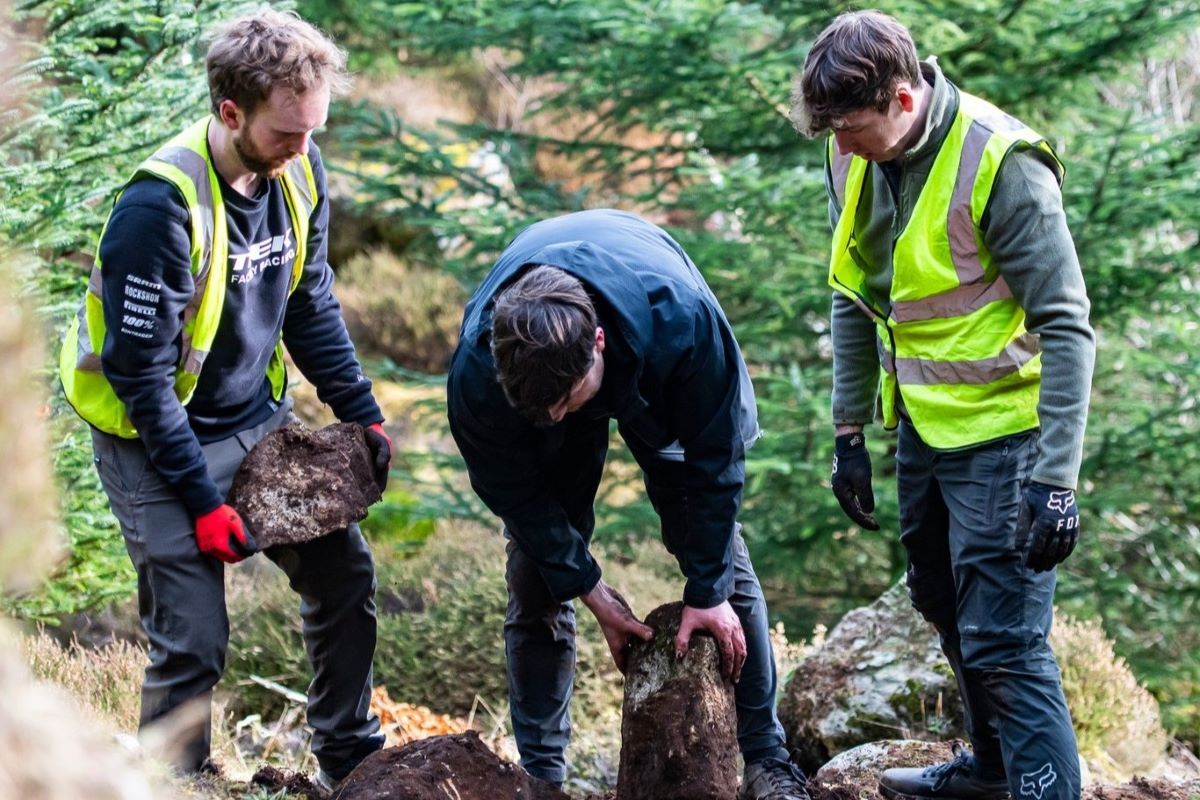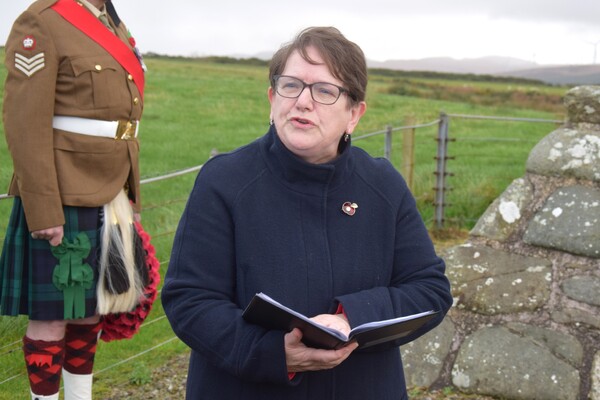Farmers fear ‘staggering financial implications’ over new slurry regulations
Kintyre farmers have added their voices to national calls for assistance in dealing with ‘staggering financial implications’ of new slurry storage regulations.
NFU Scotland has called on the Scottish Government to increase the Agri-Environment Climate Scheme budget, ring-fence funds within the scheme for slurry storage investment and extend the Scottish Agricultural Capital Grants Scheme.
It follows amendments to Water Environment (Controlled Activities) (Scotland) Regulations 2011 legislation, which means many Kintyre farms may be required to reconstruct or enlarge their existing slurry storage facilities in order to comply.
Glenbarr farmer Duncan Macalister, chairman of NFU Scotland's Argyll and the Islands regional board, said: 'Many Argyll and the Islands members have been in contact with me to discuss their concerns, particularly around the staggering financial implications they face to comply with the change in legislation.
'NFU Scotland opposed a 22-week storage requirement when responding to the Scottish Government consultation. The Kintyre members do not agree with a "one size fits all" approach as it is their view that it will never be used due to being able to spread slurry most of the year.
'NFU Scotland is asking Scottish Government and the Scottish Environment Protection Agency (SEPA) for the justification behind this requirement.
'It is of grave concern to me and we must investigate all options to financially support these businesses to ensure the protection of the milk fields both in Kintyre and on Bute, as well as assist with overall food security by ensuring that beef numbers are sustained across Argyll and the Islands.'
Kintyre's farmers have also called on SEPA to extend the compliance deadline, and to apply a ‘soft touch’ approach in how it works with farmers to comply with the new rules.
Highlands and Islands MSP Donald Cameron has backed these calls after hearing of Kintyre farmers' 'significant worries' at a time of ' increasing costs across the board'.
'I have written to Rural Affairs Secretary Mairi Gougeon and to SEPA,' he said, 'to ask them to act upon the requests from local farmers and the NFUS.'
Mr Macalister added: 'I am delighted to have the backing of Donald Cameron MSP on this important issue that is affecting nearly every farmer that has a slurry store in Kintyre and beyond.
'We look forward to continued discussions with the Scottish Government to try and find a solution to this issue and we would welcome support from all our MSPs.'
A Scottish Government spokesperson told the Courier: 'While slurry provides important nutrients for use on our farms, it can also be damaging to our natural environment if not used properly, causing harmful emissions into our air and water. Agriculture accounts for around 90 per cent of ammonia emissions.
'After 30 years, remaining mostly unchanged, slurry storage provisions have been brought up-to-date to develop resilience and sustainability in the agricultural sector.
'We have provided support to enable farmers to modernise their slurry storage over a number of years.
'The new regulations have introduced improved controls over the storage of slurry to reduce the risks of pollution, and more targeted spreading to maximise the nutrient benefit and reduce emissions.
'We understand that farms will not be able to introduce these changes overnight. The changes will be phased in, with some farms having up to five years to comply.
'Following the Sustainable Agriculture Capital Grant pilot scheme, stakeholders called for better targeting and support to be given to equipment with a recognised evidence base.
'The 2022 scheme addresses these issues and specifically targets low emission slurry spreading equipment and slurry store covers that are proven to lower ammonia emissions, protecting our vital water environment and reducing the agricultural impact on climate change and air quality.
'The Agri-Environment Climate Scheme (AECS) 2022 round is currently open for slurry storage applications for famers and crofters within the SEPA-identified priority catchments, this includes parts of Orkney and the Kintyre peninsula.
'Farmers and crofters can check if the option is available on their holdings by checking the targeting tool on the AECS website.'
A SEPA spokesperson added: 'We are currently working with Scotland's Rural College (SRUC) and NFU Scotland to produce guidance for farmers regarding the phased approach for amendments to the regulations on how silage and slurry are managed and stored.
'SEPA will, in a pragmatic manner, work with farmers who have difficulty complying with the implementation of the rules.
'The aim is for most farmers in Scotland to attain a compliant status by January 2027.'
Latest News
JOBS
Fish Health & Welfare Technician - Kames
Kilmelford, Oban£27,750 to £32,250 per annum
Business Development Manager - Highland Broadband
Inverness Area, IV13, IV63£32,000 to £35,000 per annum
Sign up to our daily Newsletter
Permission Statement
Yes! I would like to be sent emails from West Coast Today
I understand that my personal information will not be shared with any third parties, and will only be used to provide me with useful targeted articles as indicated.
I'm also aware that I can un-subscribe at any point either from each email notification or on My Account screen.
Accept
Cancel
You may also like
Latest News
JOBS
Fish Health & Welfare Technician - Kames
Kilmelford, Oban£27,750 to £32,250 per annum
Business Development Manager - Highland Broadband
Inverness Area, IV13, IV63£32,000 to £35,000 per annum













